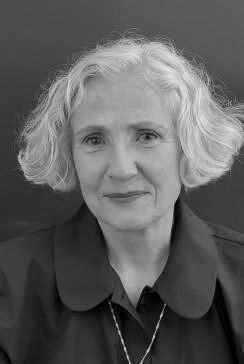
DR. ELIZABETH BOLGER, PH.D.
REGISTERED CLINICAL PSYCHOLOGIST
CONSULTANT AND SUPERVISOR
Dr. Elizabeth Bolger completed her M.A. and Ph.D. degrees at York University in Toronto where she was trained in Humanistic and Experiential Psychotherapy. For the past 28 years she has been working in private practice. She takes an integrative approach in her work with clients. Emotion Focused Therapy has been a primary influence on her development as a therapist. She provides service to individuals, couples and groups; enjoys supervising students, and welcomes the opportunity to provide EFT consultations to other professionals for individual and couples therapy. She has been a skills trainer at the Institute of Emotion Focused Therapy in Complex Trauma and Couples Therapy.
She views psychotherapy as a developmental process focused on the growth of the emotional system, which in turn leads to change, healing and the overall wellbeing of the human spirit. Working through the emotional pain at the core of a dysfunctional or overloaded emotional system is the critical therapeutic process. Her research focused on understanding the emotional pain inherent to psychotherapy.
Her interest in emotional pain began with her research on Adult Children of Alcoholics out of which she developed a model of painful experience. The work provided a detailed description of emotionally painful experience and identified a feeling of brokenness as the essence of painful experience and the context for transformative change. Brokenness is caused by trauma, abuse or loss, and when hidden, manifests in depression, anxiety, addiction, poor choices, destructive relationships and other mental health problems typically the focus of psychotherapy. Her model of pain also specified the processes involved in working through emotional pain, underscoring the therapeutic value of explicitly naming and exploring the core pain at the heart of the client's experience. Her research has guided and informed her own clinical work and that of others for over 35 years and has been applied in a number of settings and to a number of clinical problems including addiction, sexual abuse, loss due to death, separation and divorce, complex trauma, depression, anxiety, relationship problems, ADHD, and work related stress.
While working as a therapist at the Addiction Counseling Service of Peel her model of emotional pain was an essential component in a co-developed integrated program for addiction recovery. Understanding the brokenness typically underlying the addiction problem and working through the emotional pain are identified as necessary steps to recovery and relapse prevention.
She also created an explicit integration of the appropriate and timely use of EFT strategies for addiction treatment, and co-developed an early recovery empty chair strategy aimed at the emotional pain of the underlying broken child and the promotion of self-caring, self compassion and containment of threatening feelings.
As a therapist and coordinator for a depression treatment study at York University Research Centre, she continued to do research about emotional pain. She conducted a grounded analysis of the change process following short term experiential therapy for depression. The results of this work highlighted the role of working through emotional pain as an important factor in recovery.
She was the Director of Programs at the Canadian Centre for Abuse Awareness and a key member of the organizing committee for the Martin Kruze Memorial Forums focused on the awareness of child sexual abuse and the inherent emotional pain. She was a panelist at these forums giving presentations on support for the parents of sexual abuse survivors.
She brings to her work a deep understanding of developmental processes across the lifespan, spawned by an undergraduate degree in psychology with an emphasis on development. Early research projects reflect her interest in development. She explored the role of play, language and adult interaction in fostering creativity and problem solving ability in kindergarten aged children.
Immersed in the literature related to attachment theory and identity formation, for her MA research, she investigated the impact of separation anxiety on choices for careers and relationships in late aged high school students.
She credits, her experience as a primary school teacher for fifteen years, particularly the eight years she spent teaching kindergarten, for her understanding of the roots of a healthy emotional system as it interacts with thinking and behavior, and the important role it plays navigating the ups and downs of life. A thorough understanding of how the emotional system unfolds has given her a solid grounding in the factors that contribute to that happening, as well as the conditions that create impediments to that process, sowing the seeds of the emotional dysfunction and pain at the core of mental health problems rooted in experiences at this stage in life.
A further carry over from her teaching experience, is an understanding of the critical elements of the process that supports development and growth. Key to that, is trusting that the individual will grow in the right conditions, having patience for the unfolding of that process, acknowledging the smallest indication of progress, knowing when a teachable moment presents itself and when to engage with empathy, validation, compassion, information, support, education, insight, guidance or challenge. These elements that foster development and growth, learned as a teacher with young children, are the same ones that she brings skillfully to the therapeutic environment in her work with adults.
She has presented her work on emotional pain at numerous conferences and in the community and published her work on emotional pain in academic journals. Through the generosity of many clients and the privilege of sharing their struggles, a fuller and more enriched understanding of pain continues to evolve.
Her professional affiliations include: College of Psychologists and Behaviour Analysts of Ontario; Ontario Psychological Association; Canadian Register of Health Service Psychologists; International society for Emotion Focused Therapy; Society for Psychotherapy Integration; Society for Psychotherapy Research.
